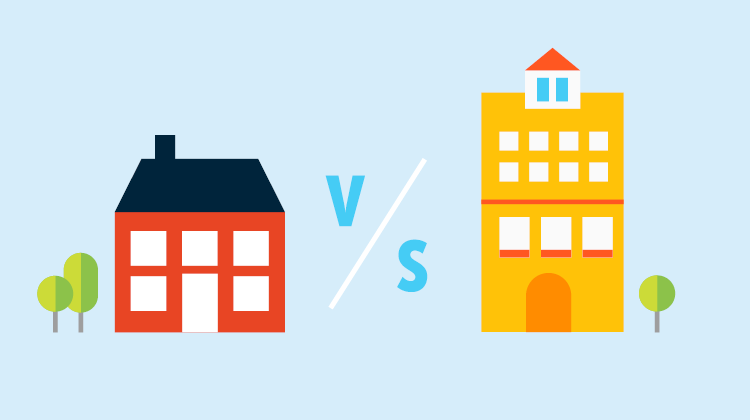In this article, we will discuss the differences between Freehold and Leasehold property.
What is Freehold?
Freehold describes a type of interest in land. The freeholder of a property owns it outright, including the land it is built on. If you purchase a freehold property, you are solely responsible for maintaining your property and land. You will own the freehold house ‘title absolute’.
What is Leasehold?
The alternative to Freehold is Leasehold, which is a little more complex. Leasehold is a form of home ownership. A lease is an agreement between you and the owner. That person or company is the freeholder or landlord. The lease sets out what you can and cannot do as a leaseholder. If you own a leasehold property, you do not own the land it stands on.
How do I know whether a property is Freehold or Leasehold?
The Title Deeds for a property will set out whether the ownership is Freehold or Leasehold. For the majority of properties in England, this information can be obtained for a small fee at HM Land Registry. Please see below link to the Land Registry database:
https://www.gov.uk/search-property-information-land-registry
At the top of the Title Register it will confirm if the property is Freehold or Leasehold. Most houses will be Freehold, whereas most flats will be Leasehold as this is the easiest way to divide blocks with multiple ownership. Your Conveyancer will be able to advise you in more detail on the title of your specific property.
What are the main differences between a Freehold house and a Leasehold house?
Owners of a Freehold house do not need to pay ground rent to anyone. This is a fee for the land your home is built on. A Leaseholder is liable to pay ground rent, alongside maintenance fees, service charge and a share of buildings insurance to the owner of the Freehold house. The owner of a Freehold house is responsible for maintaining the property and does not require permission for works to be carried out on it.
The owner of a Leasehold house may be subject to certain restrictions over the property e.g., you may not be allowed pets. If the restrictions are not adhered to or obligations within the lease are not met, the owner of the Freehold house may demand that the Leaseholder forfeits the lease.
Management companies
Typically, with flats and apartments there will be management companies who will be involved with managing the services for the apartment block. Each leaseholder will need to pay for the services provided by the management company in the name of service charges.
However, there is a common misconception that management companies apply for leasehold properties only. Freehold properties can also have management companies. There may be obligations to pay towards upkeep of communal shared spaces on a development, like a park or shared accessway etc.
The details of the management company can be found within the title deeds to your property and they will be responsible for maintaining common areas such as footpaths, open spaces, car parking areas etc. Each property owner will be required to make contributions for these services in the form of service charges.
The information contained in this article is correct at the time of publishing 05/01/2024.


Recent Comments